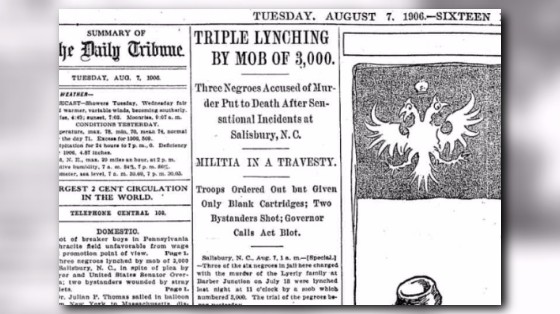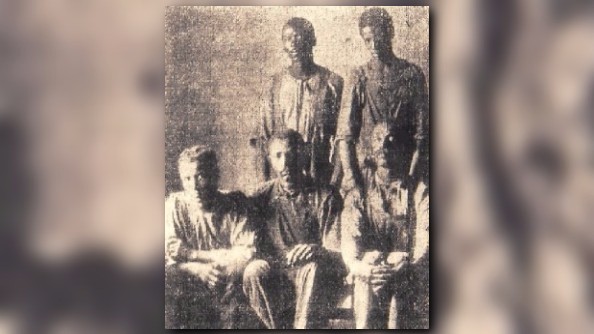On August 7, 1906, three men were lynched in Rowan County for their supposed role in the murder of five members of the locally prominent Lyerly farm family a month earlier. Though forensic evidence in the case was scant, authorities arrested six of the Lylerlys’ tenants after neighbors reported hearing the family fighting with their sharecroppers earlier in the week.

The accused—Mitchell Graham, also known as Nease Gillespie; his son, John Gillespie; Jack Dillingham and his wife, Della; George Irvin; and Nease's half-brother Henry Lee Gillespie—were taken to Charlotte for their own protection while awaiting trial.
Three of the group—Nease Gillespie, John Gillespie and Jack Dillingham—were brought to trial on August 6. At sundown after that first day of court, a mob that would ultimately grow to about 3,000 people gathered on the steps of jail in Salisbury. Though local officials tried to ease the growing unrest, the crowd broke past them and emerged from the jail with the three men in the tow. Governor Robert Glenn called out the state militia in attempt to prevent further violence, but they arrived too late to intervene.
Just after midnight on August 7, the three were hanged before the crowd shot at their dead bodies.
The incident garnered worldwide press coverage and sparked widespread outrage over increasing racial violence. Though four were ultimately arrested the murders, only one man, George Hall of Montgomery County, was tried and convicted for his role in the crimes.
Hall was sentenced to 15 years of hard labor, an oddity for those convicted in lynching cases in the post-Reconstruction South.
For more about North Carolina’s history, arts, nature and culture, visit DNCR online. To receive these updates automatically each day, make sure you subscribe by email using the box on the right, and follow us on Facebook and Twitter.


